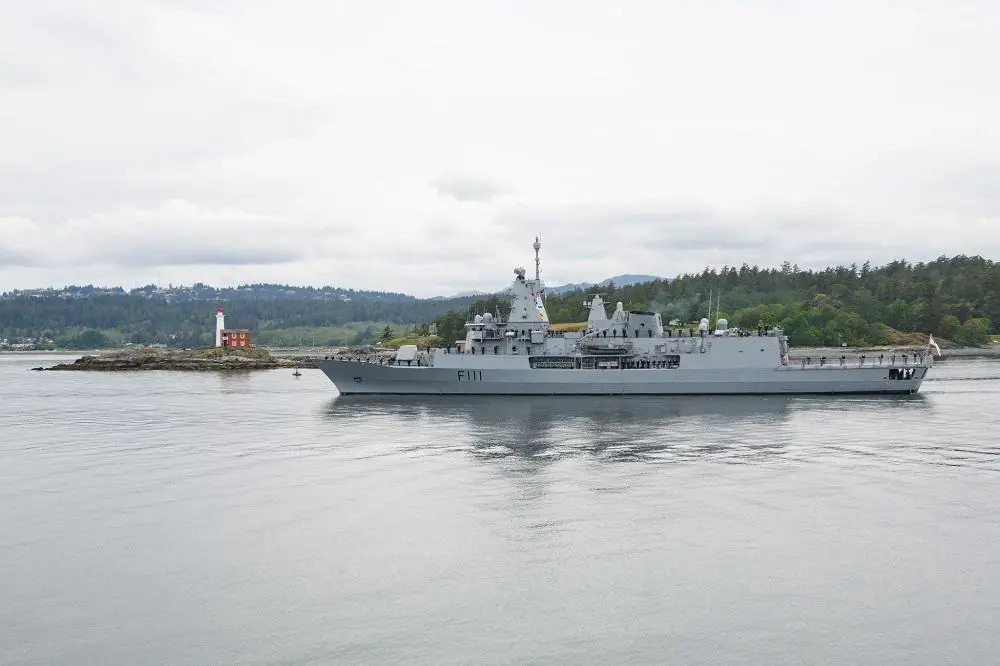HMNZS Te Mana received a full ceremonial farewell today at Canadian Armed Forces Base Esquimalt where she had been for over three years undergoing an extensive Frigate Systems Upgrade. As gun salutes from ship and shore rang out around the harbour, Te Mana slowly sailed out of Victoria on the first leg of her voyage home. The ship’s company performed a rousing Navy haka in acknowledgement of the wonderful hospitality offered by the Royal Canadian Navy and the local community. On the 14,000km sail back to Aotearoa New Zealand, Te Mana will make a number of port visits and her crew will continue to put the upgraded and future-proofed frigate through its paces.
HMNZS Te Mana is one of ten Anzac-class frigates and one of two serving in the Royal New Zealand Navy (RNZN). The name Te Mana is M?ori, approximately translating as ‘status’ or ‘authority’ (for further information on this term, see Mana). The ship was laid down under the joint Anzac project by Tenix Defence at Williamstown, Victoria in 1996, launched in 1997, and commissioned into the RNZN in 1999. Te Mana represented New Zealand in the 2018 Rim of the Pacific exercise in Hawaii and was crowned the winner of RIMPAC’s Naval Surface Fire Support Rodeo competition.

The Anzac class (also identified as the ANZAC class and the MEKO 200 ANZ type) is a ship class of ten frigates; eight operated by the Royal Australian Navy (RAN) and two operated by the Royal New Zealand Navy (RNZN). During the 1980s, the RAN began plans to replace the River-class destroyer escorts with a mid-capability patrol frigate. Around the same time, the RNZN was seeking to replace their Leander-class frigates while maintaining blue-water capabilities. As both nations were seeking warships of similar capabilities, the decision was made in 1987 to collaborate on their acquisition.
The proposed baseline characteristics called for a vessel capable of reaching speeds of 27 knots (50 km/h; 31 mph) and a range of 6,000 nautical miles (11,000 km; 6,900 mi) at 18 knots (33 km/h; 21 mph) based on a Combined diesel or gas (CODOG) propulsion system, able to operate in Sea State 5, and capable of operating a Seahawk-size helicopter. At the time of construction, the main weapon for the Anzacs was a United Defense 5-inch 54 calibre Mark 45 Mod 2 dual purpose gun. This was supplemented by an eight-cell Lockheed Martin Mark 41 Mod 5 vertical launch system for RIM-7 Sea Sparrow missiles as a point-defence system.

















